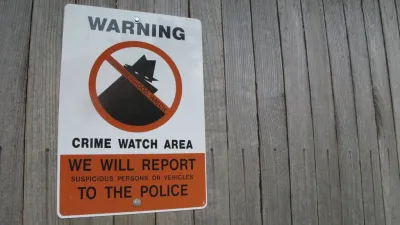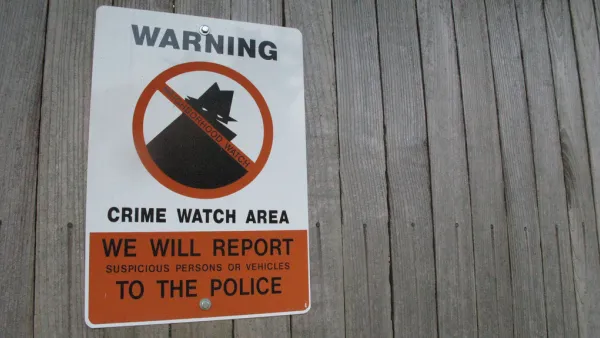As many wonder whether the nation's multi-decade crime decline will continue, research suggests that community groups and local nonprofits have played a larger role in that story than they're given credit for.

Emily Badger covers a study by NYU sociologist Patrick Sharkey which argues that ordinary citizens and nonprofits had a great deal to do with the national decline in crime. "Local nonprofit groups that responded to the violence by cleaning streets, building playgrounds, mentoring children and employing young men had a real effect on the crime rate."
The study, which Sharkey develops in an upcoming book, doesn't "contend that community groups alone drove the national decline in crime, but rather that their impact is a major missing piece."
Sharkey tracks the crime decline alongside the proliferation of nonprofit groups over 20 years, not all of them explicitly anti-crime. "The same communities were participating in another big shift that started in the 1990s: The number of nonprofits began to rise sharply across the country, particularly those addressing neighborhood and youth development."
The impact of community nonprofits may have been substantial. One estimate finds that "every 10 additional organizations in a city with 100,000 residents [...] led to a 9 percent drop in the murder rate and a 6 percent drop in violent crime." The study suggests that local nonprofits and community groups can relieve police forces of some of the non-traditional duties they've been forced to assume.
FULL STORY: The Unsung Role That Ordinary Citizens Played in the Great Crime Decline

Analysis: Cybertruck Fatality Rate Far Exceeds That of Ford Pinto
The Tesla Cybertruck was recalled seven times last year.

National Parks Layoffs Will Cause Communities to Lose Billions
Thousands of essential park workers were laid off this week, just before the busy spring break season.

Retro-silient?: America’s First “Eco-burb,” The Woodlands Turns 50
A master-planned community north of Houston offers lessons on green infrastructure and resilient design, but falls short of its founder’s lofty affordability and walkability goals.

Test News Post 1
This is a summary

Analysis: Cybertruck Fatality Rate Far Exceeds That of Ford Pinto
The Tesla Cybertruck was recalled seven times last year.

Test News Headline 46
Test for the image on the front page.
Urban Design for Planners 1: Software Tools
This six-course series explores essential urban design concepts using open source software and equips planners with the tools they need to participate fully in the urban design process.
Planning for Universal Design
Learn the tools for implementing Universal Design in planning regulations.
EMC Planning Group, Inc.
Planetizen
Planetizen
Mpact (formerly Rail~Volution)
Great Falls Development Authority, Inc.
HUDs Office of Policy Development and Research
NYU Wagner Graduate School of Public Service



























